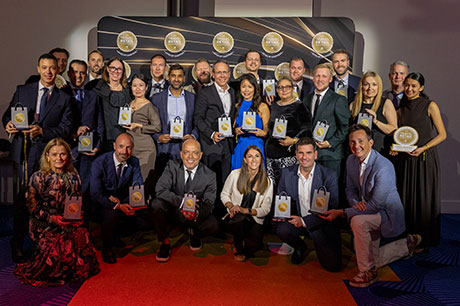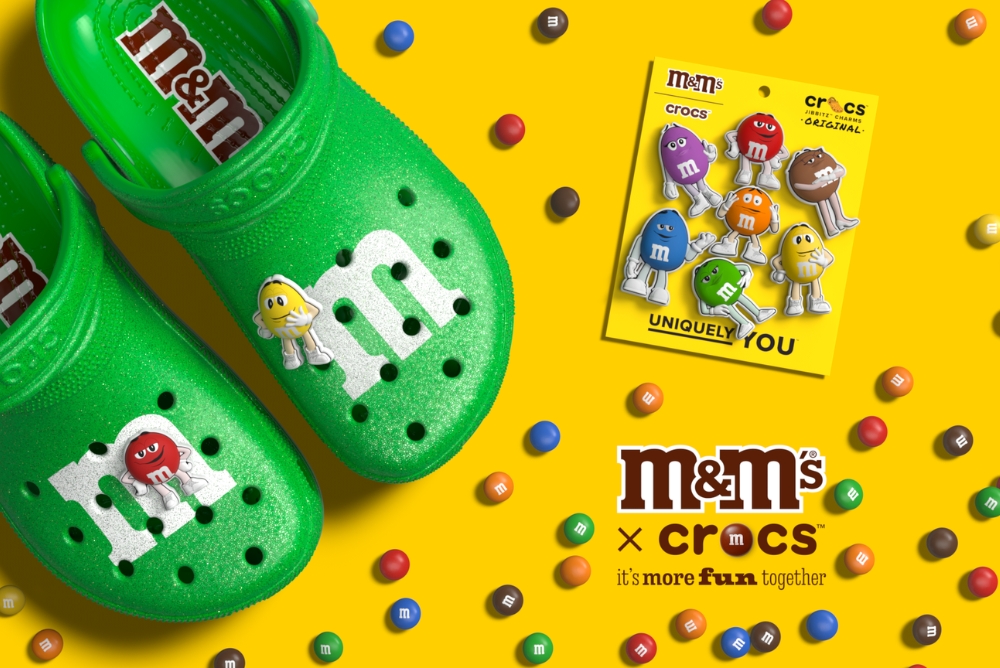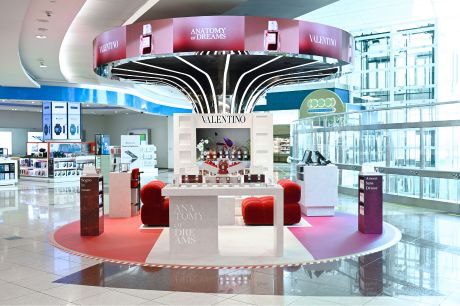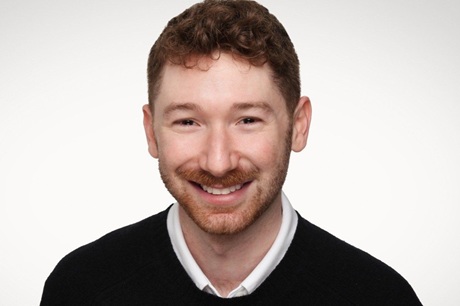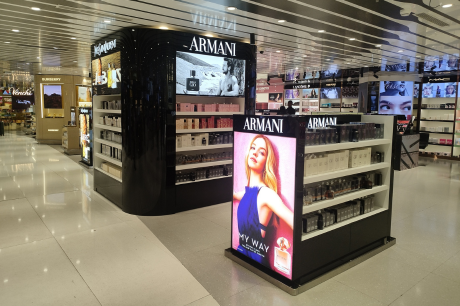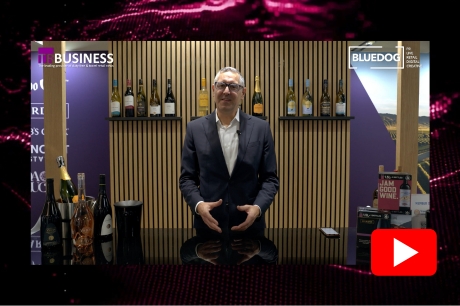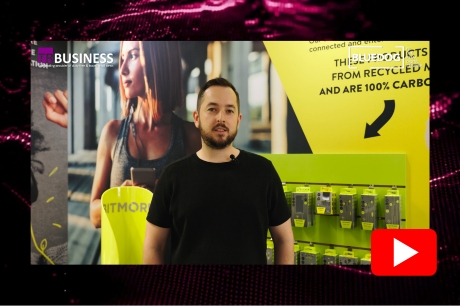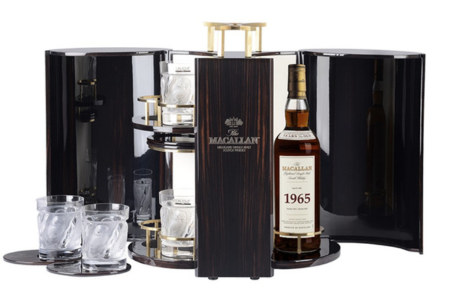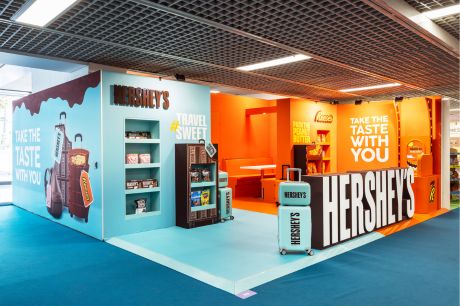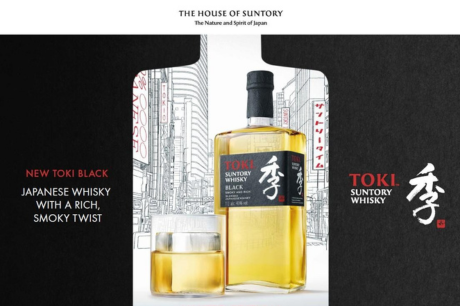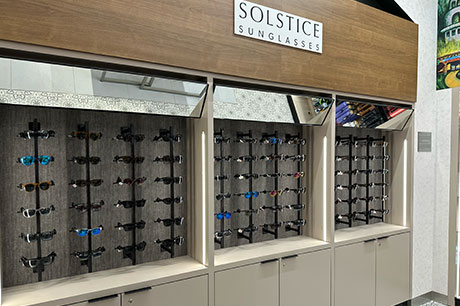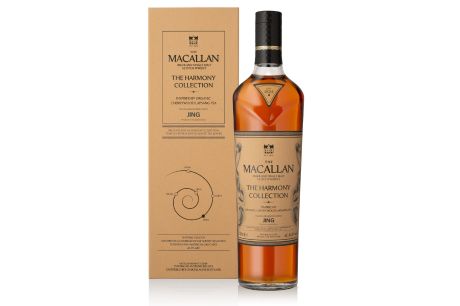TR Sustainability Week: Bringing DEI into focus in global travel retail
By Kristiane Sherry |

A group of DEI players shared their views in the Celebrating DEI in Travel Retail panel.
Sustainability is a broader church than addressing environmental concerns. In this TR Sustainability Week live session, a panel shared their initiatives when it comes to diversity, equality and inclusion (DEI).
On the second day of live sessions (all available to view on-demand), a panel of experts shared their approaches in the All are equal – Celebrating DEI in Travel Retail.
Winnie Chng, Director, Diversity, Equity & Inclusion, APAC & International at Beam Suntory, was joined by Cemal Ezel, Change Please CIC Founder, Oran McAllister, Client Engagement Officer at Navilens, Mary Point, Indigenous Relations Director at Vancouver International Airport, and Pablo Neuman and Paul Lenoir, Founder and Director respectively at Stade Toulousain Rugby Handisport.
Chng opened by outlining that Beam Suntory’s Proof Positive sustainability report also includes a focus on DEI.
“We’ve committed ambitious goals and investments to promote positive change in the environment and communities themselves and also in our workplace,” said. Beam Suntory’s brands are about bringing people together, so it makes sense to focus in this area.
“It makes our company stronger, a lot more innovative, a lot more responsive to the consumer. And it also makes for a more compelling place to work,” she continued.
2030 targets include ensuring 50% of leadership positions are filled by women, and that a minimum of 10% of global spend goes to diverse suppliers.
While acknowledging that gender “isn’t just women versus men”, she said “performance management, career management and also retention” would be key to ensuring women reach senior positions.
She also said that while there’s a global DEI strategy at Beam Suntory, elements “resonate differently” across the group. Part of the approach is “tailoring how we bring DEI to life in each region and each market.”
Beam Suntory has also implemented employee impact groups with focus areas including gender, disability and LGBTQ+ communities.
DEI: A ‘sense of belonging’
Next to speak was Vancouver International Airport’s Point, who applies an indigenous relations lens to both hiring practices and core values. “[It’s helped to set the tone for that sense of belonging that we seek,” she said.
As an indigenous Musqueam professional, she advocates for the rights of First Nations peoples.
Point gave a transparent example of her work. Pre-pandemic, the airport had won many awards for its good practices. But when Covid-19 happened and there were redundancies, a “last in, first out” redundancy approach disproportionately affected indigenous people. “We really talked about what we can do to ensure that doesn’t happen again in future.” She did this by working with local indigenous partners.
“We want our workforce to reflect the community that we serve,” she continued. “That includes our 90,000 passengers a day that come through here, from indigenous communities all over the world.

Beam Suntory has released a Proof Positive sustainability report, which features its Clermont Distillery.
She also described an exercise the team carried out to better understand the challenges of disabled passengers. From navigating the terminal blindfolded to boarding a plane in a wheelchair, she said the exercises “provide really good training”.
Point said Vancouver International undertakes voluntary audits from organisations such as the Autism Society or the Canadian Institute for the Blind. “We don’t know what may be out of whack until they come in and audit our facilities from one end to the other.” One development to come out of such an audit was the introduction of gender-neutral bathrooms.
She described how local Elders welcome refugees to Vancouver. “The call to action is to welcome newcomers.” This looks like ceremonies which “brush away the bad and help them with a new fresh start.”
Vancouver Airport also works to tackle houselessness and other needs by supporting local food banks with groceries and clothing.
Ending houselessness through coffee
Cemal Ezel then took the opportunity to introduce his Change Please venue, which employs street houseless people in the coffee industry.
“So many of the people that we support now have come from difficult backgrounds, and after some love and support they really can propel back into a working environment,” Ezel opened.
Change Please is an “employment-first” model where 100% of profits from coffee sales fund a project to end houselessness. Within 10 days, a person can receive training and employment in a living wage job, housing, and therapy.
Ezel said around 40-44% of those currently street houseless are ready to join the programme. Support is available for those with other needs that need addressing first.
In addition to the social environmental project, the coffee itself is carbon neutral. Cups are made with an aqueous water-based lining that simply and safely decomposes. Packaging is made from sugar cane.
Clients include the likes of Google, and also Virgin Atlantic within travel retail. “We were contacted subsequently by another airline as a result, and we are under NDA at the moment.”
Other projects Change Please runs include mobile dentistry for those who need it, as well as units to provide hot water for showers and haircuts.
Building autonomy in DEI
Navilens McAllister then shared how his business is developing technology designed to enable blind and visually impaired people to be more autonomous in unfamiliar situations.
There are more than 285 million people living with visual impairment globally – 39m of those are fully blind, he detailed.
“Visually impaired people in unknown spaces, how do they be independent? How do they be autonomous, because they cannot read the signage that is available,” he scoped out the problem.
Navilens has developed a “tag”, similar to but more sensitive than, a QR code to help people navigate spaces.
“What we needed was a scannable code, scannable at a much further distance in a short amount of time and without the need to focus. And in the end, the Navilens code was created in 2017.” The distance reading capabilities are 12 times further than a QR or barcode, and they offer wide angle reading.
“One of the basic features that is actually really important is that we provide information automatically in 36 different languages. The application takes the native language of your mobile phone and provides the information to the user in their native language, there’s no need for changing your settings or finding the information within the application,” he adds.
The tech is currently being trialled at Haneda Airport in Tokyo, and will be rolled out at Kobe shorty, too. Other applications include packaging, where Braille is often used. “Only 30% of people who are blind or visually impaired can actually read Braille,” McAllister said.
“Users of our technology will never have to divulge either information nor pay to use our technology,” he continued. “We also provide free kits for other associations because we’re working outside of transport and products. We’re now moving into universities, parks, concert halls, music festivals, and so on and so forth. We also provide free kits for schools, health centres, libraries, associations, and also free codes for people to use at home.”
![Stade-Toulousain-Rugby-Handisport[2] – TRBusiness Stade Toulousain Rugby Handisport – TRBusiness](https://d24chjhol3kq77.cloudfront.net/trbusiness.com/wp-content/uploads/2023/06/Stade-Toulousain-Rugby-Handisport2.jpg)
A Stade Toulousain Rugby Handisport fundraiser will take place in Cannes.
‘An active and fulfilling life’
Neuman, from Stade Toulousain Rugby Handisport, then brought the panel to a close with his story. He lost the use of his legs in a skiing accident when he was 21, and sport played a powerful role in his rehabilitation.
“Wheelchair rugby was and still is the only sport with high physical intensity. But there was no club in France at the time. So I decided to create one to improve the sport in France to make it develop all over the country,” he explained.
Today there are around 20 teams across the country, with teams initially starting with just a handful of players.
“All the people we work with have been transformed by the discovery of sport or the rediscovery of sport,” he detailed. “This is the reason why we develop the social programme.”
Neuman described his sense of despair when he first became disabled, which he often sees with people he works with. “You will immediately see everything that you have lost, everything that will no longer be the same as before, everything that has become out of reach,” he said. “And that’s where the sport becomes an incredible to the rehab process and in the rebuilding of yourself.”
For him, and many of his teammates, sport is powerful. “This way of transforming yourself and bringing awareness to your abilities, this is what we bring to the people we welcome so that they can have a more active and fulfilling life.”
The TFWA World Exhibition & Conference will host a wheelchair rugby and visually impaired football event next month to raise awareness of the sports and raise funds for Stade Toulousain Rugby Handisport.
TR Sustainability Week coverage continues online.
Winners revealed: Global Travel Retail Awards 2025
TRBusiness is thrilled to reveal the winners of the 2025 Global Travel Retail Awards, which...
M&M’S and Crocs unveil limited-edition collection fusing fashion and fun
Mars Wrigley International Travel Retail is debuting the first-ever M&M’S collaboration...
Valentino Beauty debuts Anatomy of Dreams collection at Dubai Duty Free
L’Oréal Travel Retail and Valentino Beauty have introduced the Anatomy of Dreams fragrance...

In the Magazine
TRBusiness Magazine is free to access. Read the latest issue now.

 Trbusiness. The travel retail Trbusiness. The magazine for global retail and duty free professionals.
Trbusiness. The travel retail Trbusiness. The magazine for global retail and duty free professionals.